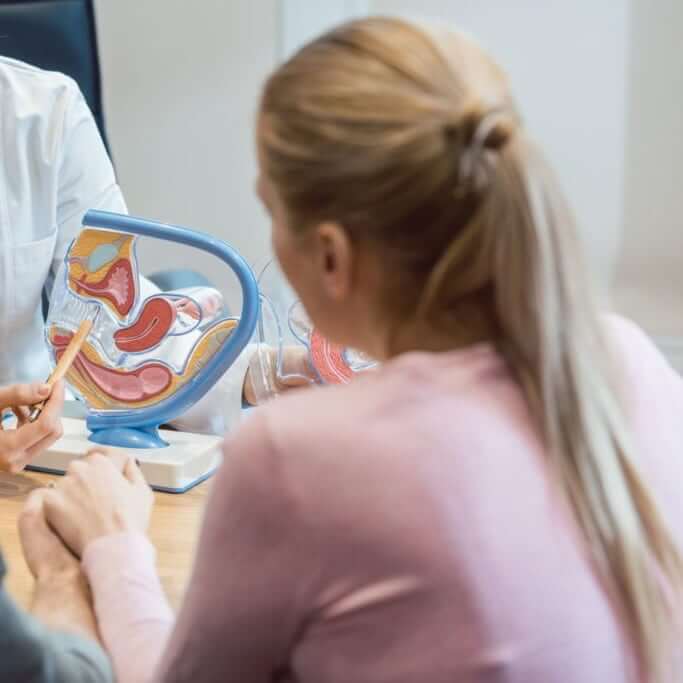The type of surgery used depends on the underlying condition and may include laparoscopic surgery, hysteroscopic surgery, or open surgery. Laparoscopic surgery involves the use of a small camera and instruments inserted through small incisions, while hysteroscopic surgery involves the insertion of a small camera and instruments through the vagina and cervix.
In addition to surgery, other treatments may be used to improve fertility, including medications such as clomiphene citrate or letrozole, and assisted reproductive technologies (ART) such as in vitro fertilisation (IVF) or intracytoplasmic sperm injection (ICSI).
It is important for individuals to discuss their options with a medical professional and weigh the risks and benefits of surgery before proceeding. Recovery time and success rates vary depending on the type of surgery and underlying condition.


Dr Victoria Nisenblat is an experienced Gynaecologist with 20+ years of experience managing gynaecological conditions medically and surgically where indicated. She is also a certified Fertility Sub-Specialist, having completed the Certificate of Reproductive Endocrinology and Infertility (CREI).